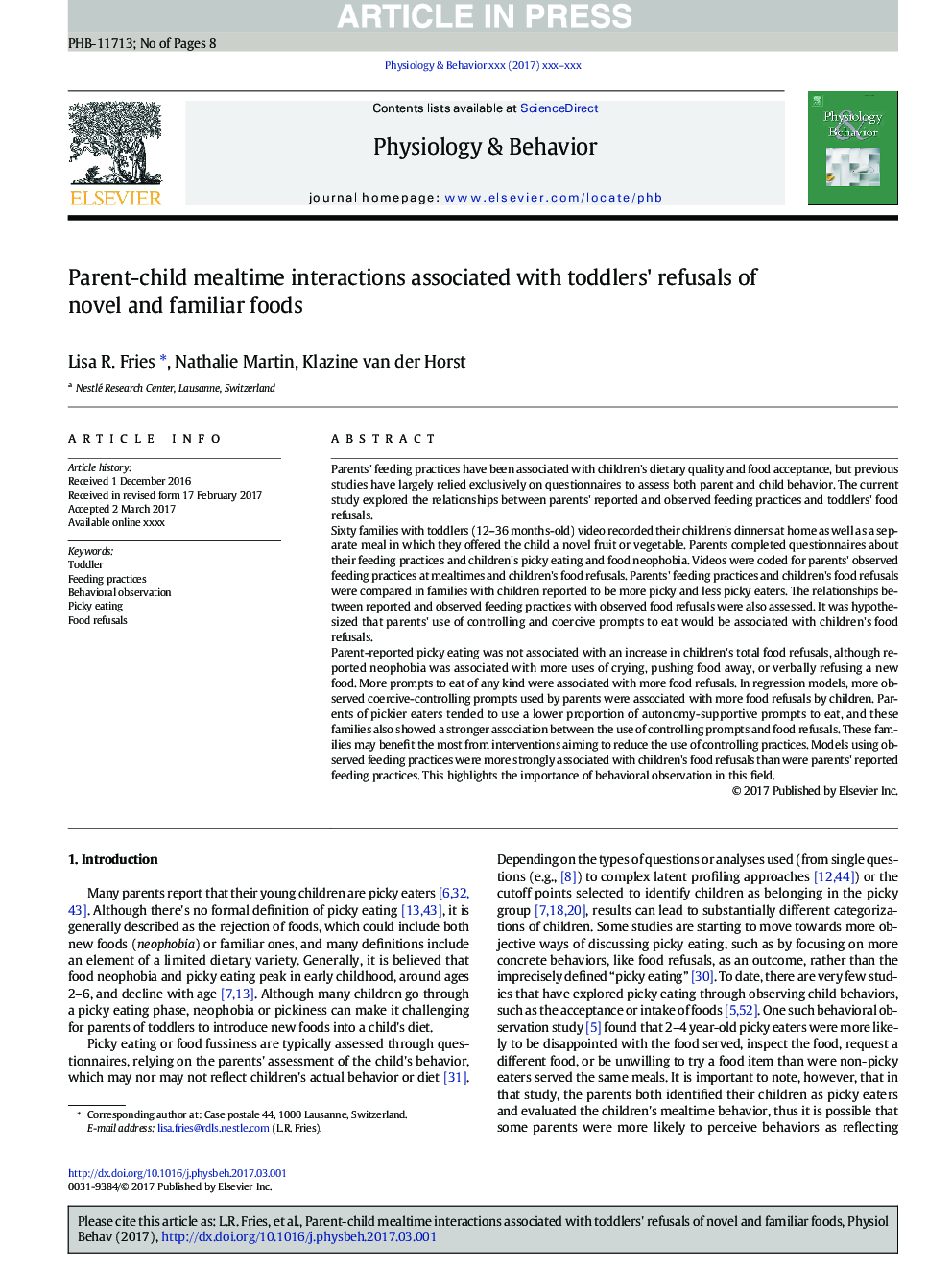| Article ID | Journal | Published Year | Pages | File Type |
|---|---|---|---|---|
| 5593888 | Physiology & Behavior | 2017 | 8 Pages |
Abstract
Parent-reported picky eating was not associated with an increase in children's total food refusals, although reported neophobia was associated with more uses of crying, pushing food away, or verbally refusing a new food. More prompts to eat of any kind were associated with more food refusals. In regression models, more observed coercive-controlling prompts used by parents were associated with more food refusals by children. Parents of pickier eaters tended to use a lower proportion of autonomy-supportive prompts to eat, and these families also showed a stronger association between the use of controlling prompts and food refusals. These families may benefit the most from interventions aiming to reduce the use of controlling practices. Models using observed feeding practices were more strongly associated with children's food refusals than were parents' reported feeding practices. This highlights the importance of behavioral observation in this field.
Related Topics
Life Sciences
Biochemistry, Genetics and Molecular Biology
Physiology
Authors
Lisa R. Fries, Nathalie Martin, Klazine van der Horst,
